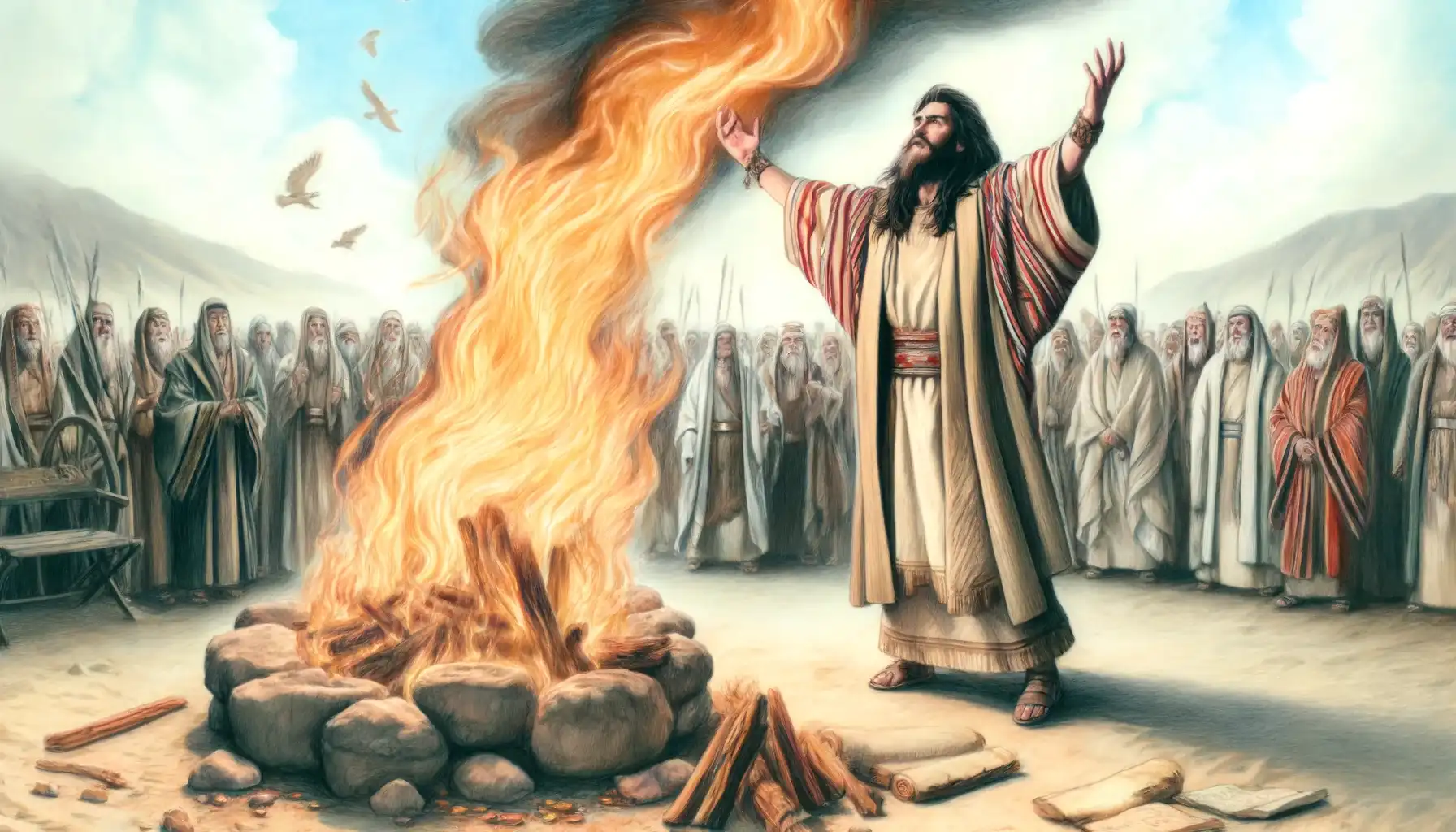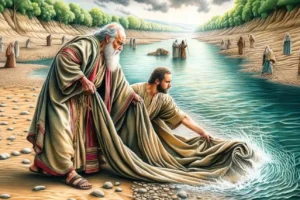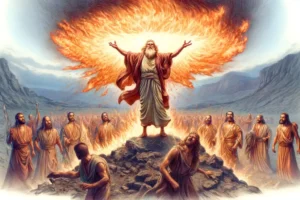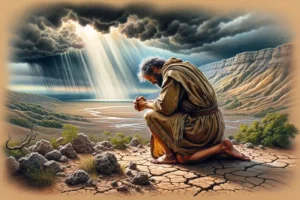
Fire from Heaven on Mount Carmel
Here are some quick facts about the event of Elijah calling down fire from heaven on Mount Carmel:
- Biblical Reference: The miracle is recorded in 1 Kings 18:36-38.
- Location: The event takes place on Mount Carmel, a significant site in northern Israel.
- Participants: Elijah, the prophets of Baal, and the people of Israel are present during this event.
- Purpose of the Miracle: Elijah sets up this demonstration to prove that Yahweh is the true God, in contrast to Baal, whom the Israelites had been worshipping under King Ahab’s rule.
- Nature of the Miracle: Elijah prepares a sacrificial altar, douses it with water three times, and prays to God. God responds by sending fire from heaven that consumes not only the sacrifice but also the water, the wood, and even the stones and soil around the altar.
- Outcome: This miraculous event leads to the people of Israel acknowledging Yahweh as the true God, saying, “The Lord, He is God! The Lord, He is God!” It also results in the execution of Baal’s prophets.
- Significance: This event is a pivotal moment in the biblical narrative, emphasizing God’s power and authority over all other so-called gods and restoring monotheistic worship among the Israelites.
The event of Elijah calling down fire from heaven on Mount Carmel, as detailed in 1 Kings 18:36-38, is one of the most dramatic and theologically significant episodes in the Hebrew Bible. It marks a crucial point in Elijah’s prophetic mission, confronting the rampant idolatry under King Ahab and Queen Jezebel’s reign.
Contextual Background
During King Ahab’s reign, Israel was steeped in the worship of Baal, a Canaanite deity associated with rain and fertility. Queen Jezebel, a Phoenician princess, had significantly influenced the religious landscape by promoting the worship of Baal. The contest on Mount Carmel was set against this backdrop of religious conflict between the worship of Yahweh and Baal.
The Contest on Mount Carmel
- Setting the Challenge: Elijah challenges the 450 prophets of Baal to a dramatic contest to let the people of Israel decide the true God based on which deity would respond by fire. This public spectacle was not only a religious test but also a direct challenge to Baal’s supposed domain over the elements.
- Preparation of the Altars: Each party prepares an altar; the prophets of Baal call on their god from morning until noon without any response, engaging in ritualistic dances and even self-mutilation to invoke Baal’s favor.
- Elijah’s Preparation: In contrast, Elijah repairs the broken altar of Yahweh, using twelve stones representing the tribes of Israel, thereby symbolizing unity and restoration. He then douses his sacrifice in water three times, which fills the trench around the altar, highlighting the impossibility of human intervention and setting the stage for a divine act.
Theological Significance
- Divine Manifestation: When Elijah prays, Yahweh’s response is immediate and overwhelming: fire descends from heaven, consuming not just the sacrifice but also the altar and the surrounding water. This miracle decisively demonstrates Yahweh’s supremacy over Baal, who is shown to be powerless.
- Restoration of Faith: The fire from heaven leads to a national reaffirmation of faith among the Israelites. They fall on their faces and acknowledge Yahweh as the true God, leading to the subsequent execution of Baal’s prophets, symbolizing the eradication of idolatry.
- Elijah’s Role: This event underscores Elijah’s role as a restorer of covenantal monotheism. His actions and the divine endorsement visibly restore the prophetic authority and the centrality of Yahweh in the life of Israel.
Broader Implications
- Monotheism vs. Polytheism: The confrontation highlights the biblical theme of monotheism versus polytheism, serving as a pivotal moment for the Israelites in recommitting to Yahweh’s covenant.
- Symbol of Divine Power: The act of fire coming down from heaven has remained a potent symbol in religious and cultural contexts, representing divine intervention and judgment.
- Eschatological Overtones: Elijah’s act of calling down fire also carries eschatological significance in later Jewish and Christian texts, symbolizing ultimate divine judgment and purification.
In summary, the fire from heaven on Mount Carmel is not just a narrative about a spectacular miracle; it is a foundational event that reaffirms Yahweh’s sovereignty, restores proper worship through a dramatic demonstration of power, and reestablishes Elijah’s prophetic mission at a time of national apostasy. This episode is a critical juncture in the religious history of Israel, emphasizing the themes of divine justice, the power of faith, and the authority of God’s word.
Leave A Reply
You must be logged in to post a comment.




1 Comment